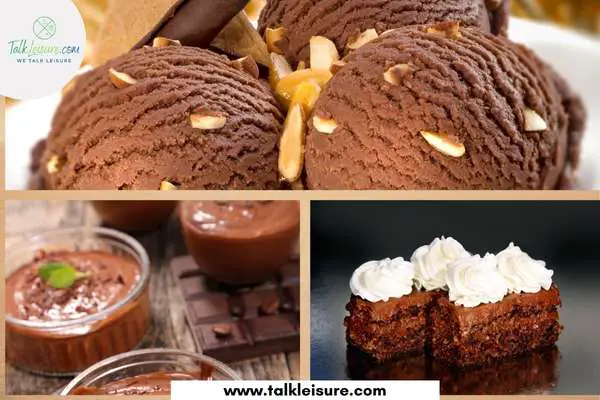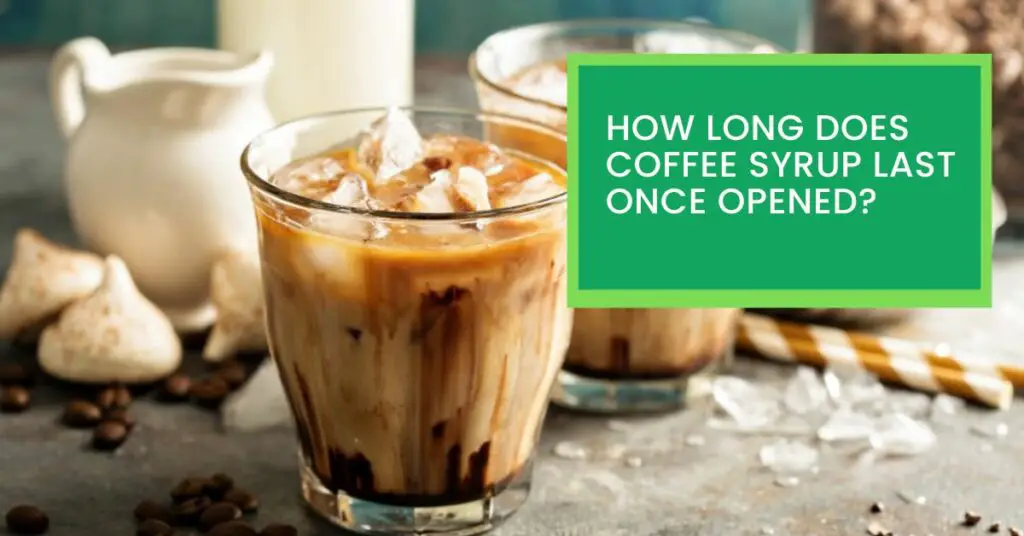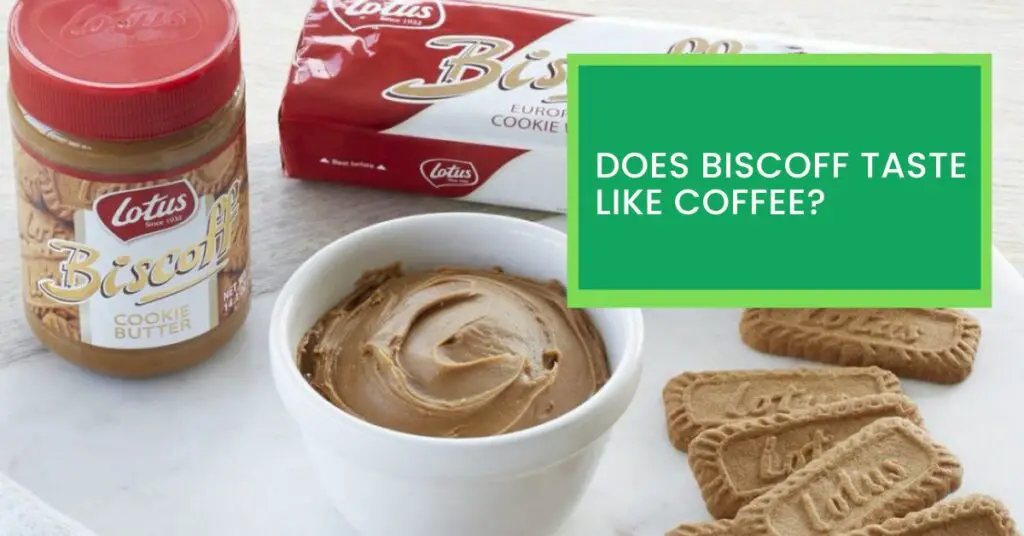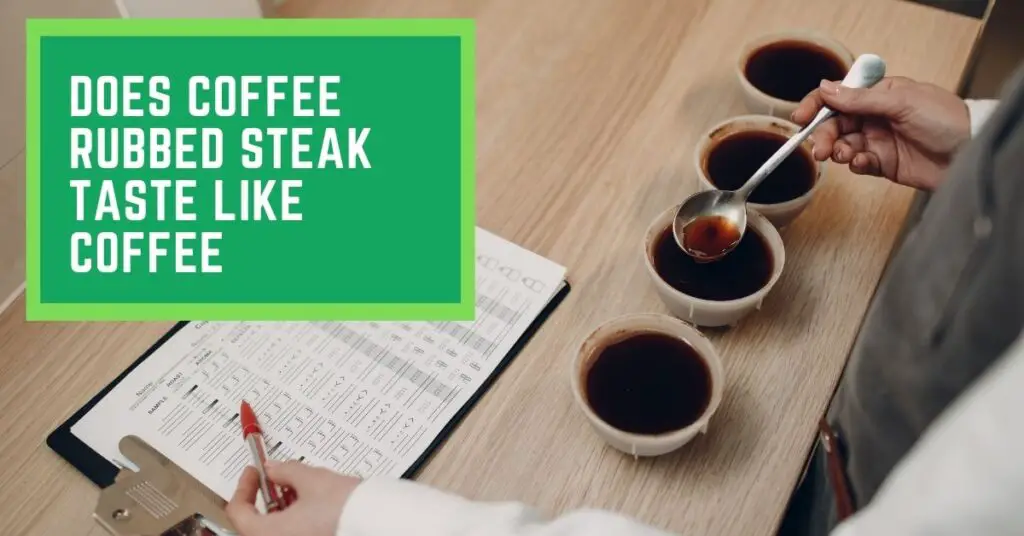It’s no secret that coffee is one of the most popular beverages in the world. In fact, according to a recent study, more than 2.25 billion cups of coffee are consumed each day! But what if you’re not a fan of coffee? What if the thought of drinking a cup of joe makes your stomach turn?
If you’re looking to develop a taste for coffee, there are a few things you can do.
First, it’s important to understand that there are different types of coffee beans and roasts. If you’ve only ever tried coffee that’s been burned to a crisp, you might not have had a fair chance of liking it. Opt for a lighter roast instead and see how you feel.
Second, don’t be afraid to add a little something to your coffee. A splash of milk or a dollop of sugar can make all the difference. You might also want to try making iced coffee or cold brew coffee, both of which have a smoother taste than traditional hot coffee.
Finally, give yourself time to adjust. If you’ve never been a coffee drinker, it’s unlikely that you’re going to become a coffee addict overnight suddenly. But if you give yourself a few weeks or even months to slowly transition to drinking coffee, you might be surprised at how much you start to enjoy it.
Before you know it, you might find yourself looking forward to your next cup of coffee!
Health Benefits of Coffee

We all know that coffee is packed with antioxidants and can give us a much-needed energy boost in the morning, but did you know that there are even more health benefits to coffee?
Regular consumption of coffee has been linked with a lower risk of death from cardiovascular disease, cancer, stroke, and other chronic conditions. So if you’re looking for another reason to enjoy your daily cup of joe, read on to learn about the surprising health benefits of coffee.
1. Coffee Can Help You Live Longer

One large-scale study found that drinking coffee was associated with a lower risk of death from all causes, including cardiovascular disease, cancer, stroke, respiratory disease, and diabetes. Researchers believe that the antioxidants and other beneficial compounds in coffee may account for the reduced risk of death.
2. Coffee May Help Reduce the Risk of Parkinson’s Disease
Parkinson’s disease is a degenerative neurological disorder that affects movement. Studies have shown that coffee drinkers have a lower risk of developing Parkinson’s disease than those who don’t drink coffee.
3. Coffee Can Help Reduce the Risk of Alzheimer’s Disease
Alzheimer’s disease is the most common form of dementia, and there is no cure. However, studies have shown that coffee consumption may help reduce the risk of Alzheimer’s disease. One study found that people who drink at least three cups of coffee per day are 65% less likely to develop Alzheimer’s disease than those who don’t drink coffee.
4. Coffee Can Help You Burn Fat
Caffeine, the main active ingredient in coffee, is known to increase metabolism and boost fat burning. One study found that people who consume caffeine daily burn more calories than those who don’t.
5. Coffee Can Help Boost Your Physical Performance

Caffeine is a well-known performance enhancer, and coffee is an excellent source of caffeine. Studies have shown that coffee can improve physical performance by increasing alertness and improving reaction time.
6. Coffee Can Help Lower Your Risk of Type 2 Diabetes
Type 2 diabetes is a serious chronic condition that occurs when your body can’t properly regulate blood sugar levels. Studies have shown that coffee consumption may help lower the risk of type 2 diabetes. One large-scale study found that people who drink at least four cups of coffee per day have a 30% lower risk of developing type 2 diabetes than those who don’t drink coffee.
7. Coffee Can Help Fight Depression
Depression is a serious mental health condition that can have a profound effect on your quality of life. Studies have shown that coffee consumption may help reduce the risk of depression. One study found that people who drink at least four cups of coffee per day are less likely to be depressed than those who don’t drink coffee.
8. Coffee Is packed With Nutrients and Antioxidants
In addition to being a good source of caffeine, coffee is also packed with nutrients and antioxidants. These nutrients include vitamins B2, B3, and B5, as well as magnesium, chromium, and manganese. Coffee is also a good source of antioxidants, which are believed to protect cells from damage.
Select the Best Coffee which Suits You

When it comes to coffee, there are a lot of different options out there. How do you know which one is right for you? It can be tricky to decide, but there are a few things you can keep in mind that will help you select the best coffee for your personal taste.
First, think about what kind of flavour you like in your coffee. Do you prefer a bolder taste or something more mellow? This will narrow down your choices considerably.
Next, consider how you like your coffee prepared. Do you like it black, with cream and sugar, or maybe just a splash of milk? Again, this will help to rule out certain types of coffee that might not suit your taste.
Finally, think about what kind of atmosphere you like to enjoy your coffee in. Do you prefer a cozy cafe setting, or do you like to drink your coffee on the go? This will help you decide if you want to buy pre-packaged coffee or beans that you can grind yourself.
Once you’ve considered all of these factors, you should have a pretty good idea of what kind of coffee is right for you. So go out and explore all the different types of coffee available and find the perfect one for your taste!
Become a Coffee Lover – Golden Tips
If you’re one of those people who can’t stand the taste of coffee, you’re not alone. In fact, according to a recent survey, nearly 30% of Americans don’t like coffee. But that doesn’t mean you have to miss out on all the benefits that come with drinking coffee. Here are a few tips to help you start liking coffee:
Choose the right type of coffee bean

There are many different types of coffee beans, and each one has its own unique flavour profile. If you’ve been sticking to one type of bean and haven’t liked it, try another one. You might be surprised at how different they can taste.
Add some flavouring
If you still can’t stand the taste of coffee, try adding some flavorings to it. A little bit of milk or cream can help take the edge off the bitterness. You can also add a sugar substitute like stevia or monk fruit to sweeten it up.

Drink it cold
If you’re not a fan of hot coffee, try drinking it cold instead. Cold brew coffee is becoming increasingly popular, and it has a smoother, less bitter flavour than traditional coffee.
Try decaf coffee
If your sensitivity to caffeine is what’s keeping you from enjoying coffee, try decaf instead. Decaf coffee has most of the same flavours as regular coffee but without the caffeine jitters.
Give it time
If you’re still not sure about coffee, don’t give up just yet. It can take some time to get used to the taste. Try drinking it on a regular basis and see if your opinion changes over time.
Whether you’re looking to improve your health, boost your energy levels, or enjoy a delicious cup of coffee, give these tips a try. With a little bit of effort, you might find that you start liking coffee after all.
6. Start with Alternatives (Cakes, Ice Cream & Chocolates)

Coffee is an acquired taste, and some people never acquire it. If you find yourself in this category, there’s no need to force yourself to drink something you don’t enjoy. Instead, try one of the many coffee-flavoured alternatives out there.
There are plenty of delicious coffee-flavoured cakes, ice creams, and chocolates available, so you can still enjoy the taste of coffee without actually drinking it. Who knows, you might find that you like these alternatives even better than the real thing!
Best way to Prepare your Milk Coffee
Making a great cup of coffee with milk doesn’t have to be difficult. With a little bit of practice, you can make a delicious coffee that is both foamy and flavorful. Here are a few tips to help you make the best milk coffee possible.
The first step is to choose the right type of milk. Whole milk will give your coffee a richer flavour, while skim milk will produce a lighter drink. If you are lactose intolerant, there are plenty of non-dairy options available that will work just as well.
Next, it’s important to select the right grind for your coffee beans. For milk coffees, a medium grind is usually best. This will allow the coffee to extract evenly and produce a consistent flavour.
Once you have your milk and coffee beans ready, it’s time to start brewing. Place the desired amount of coffee grounds into your filter, then slowly pour in hot water. Be sure to use a gentle stream so that the coffee doesn’t become too bitter.
After the coffee has finished brewing, it’s time to add the milk. For best results, use a frothing wand to aerate the milk and create a rich, creamy foam. Once the milk is foamy, slowly pour it into your coffee cup and enjoy!
Iced Coffee Vs Hot Coffee – What is the Best for Beginners

When it comes to coffee, there are two main camps: those who prefer their coffee hot and those who like it cold. But what if you’re a beginner? What’s the best way to get started?
Hot coffee has been around for centuries and is the most popular way to drink coffee worldwide. It’s simple to make and can be enjoyed in many different ways. Plus, there’s something comforting about sipping on a hot cup of joe.
However, iced coffee is becoming increasingly popular, especially in the summer months. It’s refreshing, easy to make, and can be customized to your own taste. So, which is the best option for beginners?
Let’s take a closer look at each type of coffee and see what the pros and cons are.
Hot Coffee

Pros:
– Hot coffee is simple to make. All you need is a pot of boiling water and some ground coffee.
– There are endless ways to customize your hot coffee. You can add milk, sugar, flavouring, or even alcohol.
– Hot coffee is a great way to warm up on a cold day.
Cons:
– Some people find hot coffee too strong or bitter.
– It can be easy to burn yourself with hot coffee.
Iced Coffee

Pros:
– Iced coffee is refreshing and perfect for summer days.
– It’s easy to make and can be customized to your own taste.
– Iced coffee is less likely to cause heartburn than hot coffee.
Cons:
– Iced coffee can be watery and diluted if not made properly.
– It can be more expensive than hot coffee since you need to use more coffee grounds.
So, which is the best option for beginners? There’s no easy answer since it depends on your personal preferences. If you like strong coffee, then hot coffee is probably the way to go. But if you prefer a refreshing drink, iced coffee might be better suited for you. Ultimately, it’s up to you to decide which type of coffee you like best. Why not try both and see for yourself?
Make your Own Coffee at Home

Coffee is one of the most popular beverages in the world, and for a good reason. Not only does it taste great, but it can also give you a much-needed energy boost.
However, buying coffee from a shop can be expensive, and sometimes you don’t have the time to wait in line. Luckily, making your own coffee at home is easy, and it doesn’t have to be expensive either.
There are a few different ways that you can make coffee at home, but the most common method is using a coffee maker. Coffee makers come in all shapes and sizes, so you should be able to find one that suits your needs. If you want to save money, you can even buy used coffee makers from garage sales or online auction sites.
Once you have your coffee maker, all you need is some coffee beans and water. You can find coffee beans at most grocery stores, and they come in a variety of flavours.
If you want to experiment, you can even buy different types of beans and mix them together. Just make sure that you grind the beans before adding them to the coffee maker, as this will help to extract their flavour.
Once you have everything ready, follow the instructions on your coffee maker and enjoy your freshly brewed cup of coffee! If you want to add a bit of flavour, you can always add milk, sugar, or syrup to taste. There are also a number of different recipes that you can use to make iced coffee, cappuccinos, and other fancy drinks.
Making your own coffee at home is a great way to save money and enjoy a delicious cup of coffee whenever you want. So what are you waiting for? Get brewing!
Visual Explanations
i. How to start liking coffee:
ii. People try coffee for the first time:
Related Matters
01. Can I force myself to like coffee?
It’s not entirely uncommon for people to dislike the taste of coffee. In fact, a lot of people who don’t typically drink coffee will say that they don’t like the taste.
However, there are plenty of ways to force yourself to like coffee. A change in mindset is one way to go about it. If you keep telling yourself that you don’t like coffee, then obviously, you’re never going to start liking it.
On the other hand, if you keep telling yourself that you love coffee and that it’s the best thing ever, eventually, your mind will start believing it. Another method is by slowly getting used to the taste. If you start off by drinking a cup of coffee with lots of sugar and cream, you’re never going to be able to drink it black.
Start off by adding less and less sugar and cream until you’re finally drinking it black. Once you’re used to the taste, you’ll be able to enjoy all the different types of coffee out there.
02. How do Beginners start drinking coffee?
There are a lot of ways to start drinking coffee, but for beginners, it’s best to start with a single-origin coffee or a blend. Look for coffees that are light to medium roasted, and make sure to avoid flavoured coffees until you’ve developed a palate for the different flavours and aromas of coffee.
When you’re ready to start experimenting with different types of coffee, try brewing them using different methods like pour-over, French press, or espresso. And remember, it’s always helpful to ask your local barista for recommendations. They’ll be able to help you find the best coffees and brewing methods for your taste buds.
03. Why do I suddenly like coffee?
There’s no one answer to this question – it differs from person to person. Some might discover they enjoy coffee after years of avoiding it, while others might find themselves craving it after just a few sips. There’s no wrong answer – it simply comes down to personal preference.
There are many possible explanations for why someone might suddenly find themselves enjoying coffee. It could be that they’ve finally found the right balance of cream and sugar (or lack thereof) that makes the beverage more palatable.
There’s also the possibility that their taste buds have changed over time, and they’re now able to appreciate the bitterness of coffee more than they could before. Additionally, drinking coffee in certain contexts (like in the morning as a pick-me-up) can also make it more enjoyable. Ultimately, it’s up to the individual to figure out what they like about coffee and why.
04. Why do I hate the taste of coffee?
It’s possible that you don’t like the taste of coffee because your palate requires a high level of sweetness to go with the coffee flavour.
It’s common for people who eat a lot of sugar, junk food, or processed food to need a lot of sugar or salt to enjoy food. In other words, it’s the norm for most Americans, and it’s the reason people from other countries often find our food too sweet.
The good news is that by eating natural foods, the taste buds can slowly be awakened to a whole array of real flavours, and everything begins to taste much sweeter naturally without all the added sugar.
05. How much coffee is too much?
There’s no one-size-fits-all answer to this question, as everyone metabolizes caffeine differently. However, as a general rule of thumb, drinking more than four cups of coffee per day (or the equivalent amount of caffeine) can start to have negative effects on your health.
Caffeine is a central nervous system stimulant, which means it can speed up your heart rate and make you feel more alert. While this can be helpful in small doses, too much caffeine can lead to anxiety, jitters, and insomnia. Drinking too much coffee can also cause stomach problems like indigestion and heartburn.
Of course, if you’re used to drinking large amounts of coffee every day, suddenly cutting back can also have negative effects. If you’re worried about your caffeine intake, it’s best to talk to your doctor or a registered dietitian to come up with a plan that’s right for you.











